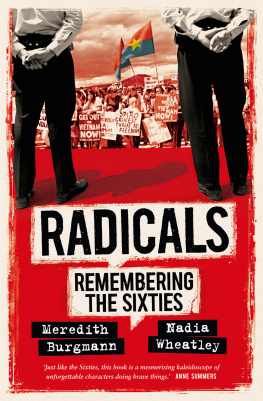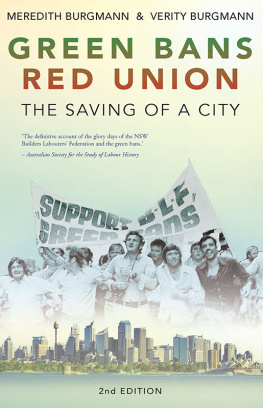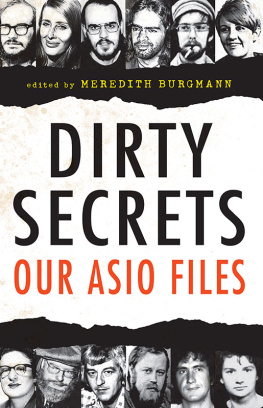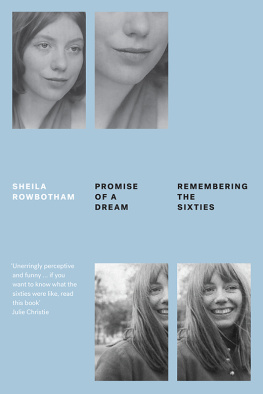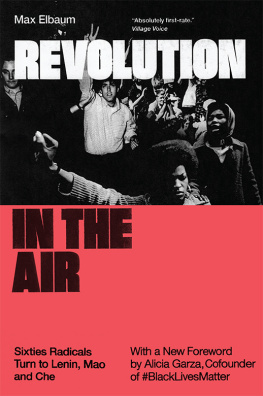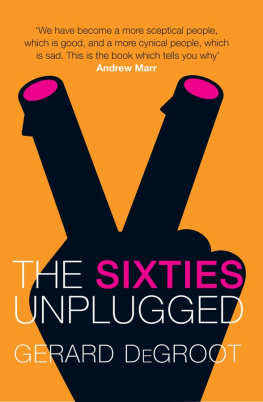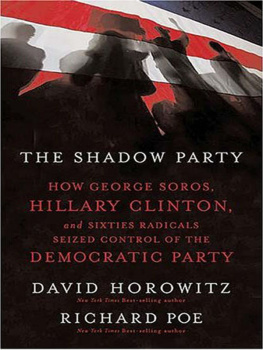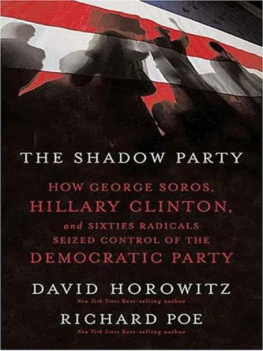Contents
Page List
Guide

RADICALS
M EREDITH B URGMANN is a former academic who also served as a (Labor) president of the NSW Upper House. She is the co-author, with Verity Burgmann, of Green Bans, Red Union: The saving of a city, which was reissued twenty years after its original 1998 publication. Meredith has also authored books on ASIO and misogyny. She is the founder of the Ernie Awards for Sexism. On retirement from parliament, she was elected president of the Australian Council for International Development. Meredith is a Sydney Swans ambassador.
N ADIA W HEATLEY is an Australian writer whose published works include picture books, novels, biography, memoir and history. Five Times Dizzy (1982) was hailed as Australias first multicultural book for children. Other social and political issues explored in her work include conservation, unemployment, refugees and learning from Country. Among her numerous awards is the NSW Premiers History Award (2002) for The Life and Myth of Charmian Clift. Nadias most recent book is the memoir Her Mothers Daughter (2018).
Just like the Sixties, this book is a mesmerising kaleidoscope of unforgettable characters doing brave things, inventing new ways to talk and act and express themselves and, above all, reinventing politics as their radicalised generation went to work to banish injustices like racism, sexism, conscription and, looming over everything else, the Vietnam War.
We also are treated to their diverse personal stories, the family ties many of them needed to rebel against, and the inventing of new ways of living that still guide them today.
Anne Summers author of Australian feminist bible
Damned Whores and Gods Police
The old saying, if you remember the Sixties you werent there Not True! An exciting time of change that shaped Australia and the world for decades to come, perhaps forever.
Vietnam, womens rights, land rights, Springboks, Gove, Bjelke-Petersen, Black Power, flower power, Freedom Riders, abortion rights and socialism the list goes on.
Thank you, Radicals you made a better place for us.
Linda Burney First Nations trailblazer
During the Sixties we were tired of suppressing our discontent as we lived in our inward-looking society.
We wanted a forward-thinking, dynamic world, one that cared about ALL its people. Then along came our magnificent RADICALS, and of course, GOUGH! Aah, the memories. What a buzz!
Patricia Amphlett (Little Patty)
epitomises the Its Time excitement
To achieve the change we desperately need now, it is crucial to look back on how we got the change we take for granted.
Craig Reucassel saving the planet today
To all our comrades who were part of the radical Sixties. Despite our differences, we all fought for a better world. Particularly we remember those who have died some of them far too early.
A NewSouth book
Published by
NewSouth Publishing
University of New South Wales Press Ltd
University of New South Wales
Sydney NSW 2052
AUSTRALIA
newsouthpublishing.com
Meredith Burgmann and Nadia Wheatley 2021
First published 2021
10 9 8 7 6 5 4 3 2 1
This book is copyright. Apart from any fair dealing for the purpose of private study, research, criticism or review, as permitted under the Copyright Act, no part of this book may be reproduced by any process without written permission. Inquiries should be addressed to the publisher.
ISBN9781742235899 (paperback)
9781742245133 (ebook)
9781742249650 (ePDF)

| A catalogue record for this
book is available from the
National Library of Australia |
Internal design Josephine Pajor-Markus
Cover design Debra Bilson
Cover image Spiro Agnew visit to Australia. Protest against the Vietnam War, 1970. National Archives of Australia
Printer Griffin Press
All reasonable efforts were taken to obtain permission to use copyright material reproduced in this book, but in some cases copyright could not be traced. The authors welcome information in this regard.
This book is printed on paper using fibre supplied from plantation or sustainably managed forests.

The Woodstock generation will go to its grave with a sense that it is special. And indeed, even those of us who werent invited to the party must concede that there was something unique about the Sixties.
Timothy Noah, The Big Massage,
Washington Monthly, February 1984
Contents
Meredith Burgmann and Nadia Wheatley
Saturday 6 June 2020. 1.30 pm.
We stand in Sydneys Town Hall Square, two women in our seventies, holding handwritten placards. Merediths says, Remember John Pat. 19661984. Nadias says, Solidarity! Black Lives Matter.
We have stood here before, many a time, for a variety of campaigns and causes. But this time is a bit different. Mindful of the pandemic, we are both wearing face masks, and we are doing our best to stand a metre-and-a-half from other protestors. After weeks of lockdown, it feels surreal to be outdoors and in a crowd, but the oddest thing is that, as we look at the faces (also mostly masked) around us, we see no one whom we know. Indeed, there seems to be no one else here over the age of forty. We find it a cause for optimism that our generation of Sixties radicals is not irreplaceable.
From the microphone at the top of the steps, speeches crackle, interspersed by periodic bouts of chanting. Around us, a sea of red, black and yellow surges and swirls.
The recent death in the United States of George Floyd and the subsequent protests by the Black Lives Matter movement have given a new edge to the Aboriginal campaign against deaths in custody, which has been running since the 1980s. Signs around us bear the number 432: the tally of Indigenous Australians who have died in custody since the 1991 Royal Commission into Aboriginal Deaths in Custody. None of those deaths has led to a single conviction of any officer of the law.
Too many coppers, not enough justice! the chant rises.
The Law is out in force today, and it looks as if violence (not to mention a public health problem) could well result from the way police are acting. Barricades are preventing social distancing by squashing people close together.
Just like the old days, we agree, as we survey the ranks of uniforms.
But what was it that originally took the two of us onto the streets?
ONE OF THE BEST-KNOWN SLOGANS OF THE SIXTIES IS THE claim that The personal is political. Although no one is sure who first said this, nevertheless it expresses the spirit of the time.
Of course, in any era, people bring their personal history to their political life, but in this book we relate the personal stories of a number of people from our generation who either in reaction to a particular Sixties issue or simply in response to the zeitgeist rejected the political views and values of their family, school, church and class. These radical about-turns were often accompanied by epiphanies, awakenings, revelations and other such aha moments.
Five decades on, our society seems to have moved so far from that hopeful and innocent era that even using the word radical may need a bit of explanation. In the current political climate, the term has come to be associated with the kind of people who go off to fight for ISIS or who occasionally run amok in their homeland. It is also used for members of the alt-Right.

